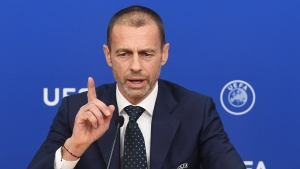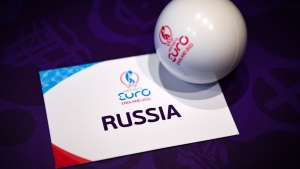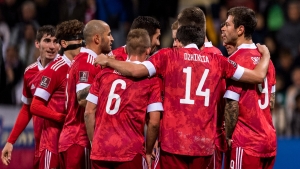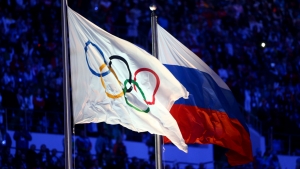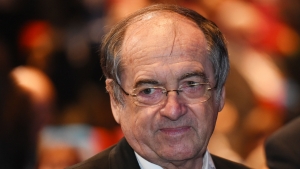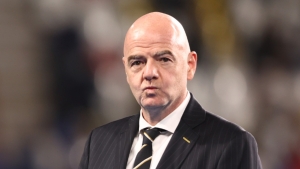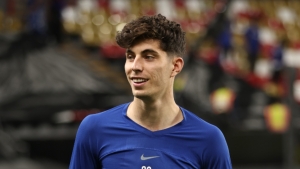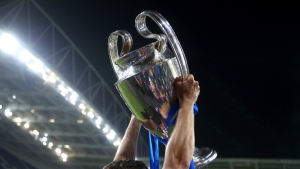It's officially a World Cup year, that means footballers all over the globe will be hoping to get themselves into contention for their own shot at glory in Qatar.
Back in November, Stats Perform began their one-year countdown to the biggest show in football by identifying 11 uncapped players who could potential break into their respective national squads before Qatar 2022 got under way.
With February now upon us, we have revisited those players to see how they have been faring and whether a trip to World Cup looks any likelier…
Luis Maximiano (Portugal) – 23, goalkeeper, Granada
Having been one of LaLiga's form goalkeepers during the early stages of the season, Maximiano has been a little rocky lately. Since the start of December, he has conceded 10 times (excluding own goals) in the league despite those chances only being worth 7.9 xG – that puts him at least partly at fault for 2.1 goals, the sixth-worst over that period.
Jonathan Clauss (France) – 29, right-back, Lens
Clauss continues to show his worth in Ligue 1. Since December 1, his three assists have been bettered by only Dimitri Payet and Lovro Majer. Granted, the expected assists (xA) value of those was only 1.2, so there's an element of luck or benefiting from expert finishing, but he's still proving himself a good outlet both out wide and from set plays.
Bremer (Brazil) – 24, centre-back, Torino
Torino managed to keep Bremer in January before they extended his contract by a year to 2024 on Wednesday. Not only does that protect his value to the club, it was also a just reward for his reliable form. Since December 1, his tally of 21 interceptions is the second-highest among Serie A defenders, as is his 28 aerial wins.
Sven Botman (Netherlands) – 22, centre-back, Lille
Lille stood firm as Newcastle United tried to prise Botman away in January. Over the past two months, the Dutchman has continued to look an imperious presence at the back – his duel success rate (76.5 per cent) is the highest among defenders with at least 300 minutes on the pitch, while only two of those to have engaged in more than 11 aerials can better his success rate (79 per cent) in the air.
Angelino (Spain) – 25, left-back, RB Leipzig
Spain certainly aren't short of quality options in this area of the pitch, but Angelino is still a standout from an attacking sense. Since early December, his 3.0 xA is the best in the Bundesliga, while only five players have played more key passes than him (16).
Riqui Puig (Spain) – 22, midfielder, Barcelona
It's not looking good for Puig. It was thought Xavi's arrival might finally be the break he needed, but he has played only 158 minutes of LaLiga football in the past two months, and that was a period that saw Barca under real stress amid an injury and COVID-19 crisis. With players returning to action, including Pedri, few would be surprised to see his minutes reduce even further.
Christopher Nkunku (France) – 24, midfielder, RB Leipzig
Nkunku continues to look to be in with a great chance of forcing himself into France reckoning. Since we last checked on him, the versatile midfielder has scored four non-penalty Bundesliga goals, bettered by only four players (all out-and-out strikers), and laid on three assists. Only five players have tallied more goal involvements over the same period.
Alan Velasco (Argentina) – 19, winger, FC Dallas
Young talents leaving South American countries for MLS is becoming a recurring them – Velasco is the latest. The young winger became Dallas' record signing on February 1, reportedly costing $7million. He has not played much in recent months due to the Argentinian football calendar, so it will be intriguing to see if he kicks on when MLS starts again at the end of the month.
Cade Cowell (United States) – 18, forward, San Jose Earthquakes
The first success story on this list! Cowell was given his international bow in December as the USA beat Bosnia-Herzegovina 1-0. He did only feature for 12 minutes, and it was a partly experimental squad, but a cap is a cap.
Amine Gouiri (France) – 21, forward, Nice
Gouiri is another who continues to plug away to good effect. He slowed a little, and his return of five goal involvements (three assists, two goals) in the specified period is bettered by as many as eight players, though only Payet has as many as seven. The exciting forward is still doing well, though he could do with another minor boost.
Matias Arezo (Uruguay) – 19, forward, Granada
With the Uruguayan season finishing in early December, Arezo has not played much since his form was last examined – though he did get one more goal to take his seasonal tally to 15 in 29 games for River Plate (URU). That form earned him his shot in Europe, with Granada pulling off a potentially major coup in bringing him to Spain for about €3million. He awaits a first senior cap, though Uruguay are back in an automatic qualification spot.





















